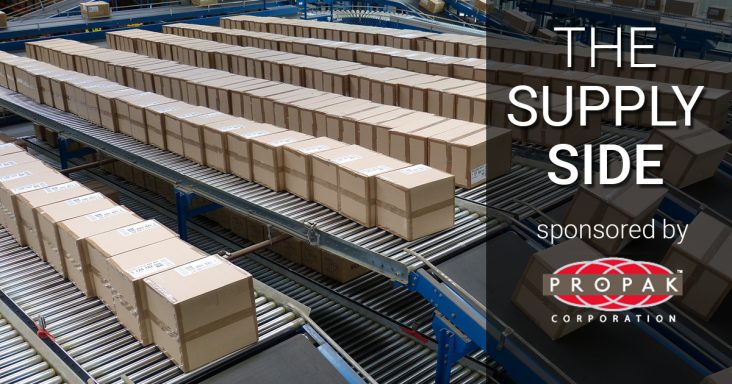The Supply Side: Walmart expands Marketplace to sellers from India
by June 14, 2022 3:01 pm 895 views

Walmart International CEO Judith McKenna remains bullish about growth opportunities in India since the retail giant’s majority purchase of Flipkart in 2018 for $16 billion. Walmart has since expanded its India initiative by leading a $1.2 billion financing round in July 2020 to obtain a more significant 77% majority share in Flipkart. It also made a joint investment with Flipkart into the Indian agricultural supply chain technology platform Ninjacart in December 2021.
McKenna has said the Flipkart business is ripe with innovation. Walmart was also drawn to Flipkart’s diversified company, enough so that the retail giant has since copied some of it. Walmart has also launched a flywheel model that focuses on diversified revenue streams that allow for an ecosystem that can better serve clients and supplier partners, much akin to what Flipkart has.
Four years into helping grow Flipkart’s business in India, Walmart recently announced a new Marketplace platform open to Indian manufacturers and sellers to reach the growing market of 120 million U.S. shoppers monthly.
The company sees particular potential for India-made products in popular categories like furniture, bedding and home décor on Walmart Marketplace. Walmart plans to increase its sourcing from India to $10 billion worth of merchandise a year by 2027.
According to Walmart, its “Made in India” export commitment reflects India’s continuing rise as a global manufacturing hub. It is expected to significantly boost micro-, small- and medium-sized enterprises (MSMEs) in India. The effort joins ongoing MSME-focused initiatives the retailer supports in India, such as the Walmart Vriddhi supplier development program. A cross-border trade training program is now being developed under Vriddhi to help sellers prepare to begin leveraging the digital supply chain to sell overseas. Indian sellers on Walmart Marketplace are also guided by a new Walmart Cross Border Trade team in India.
Walmart said it would guide Indian sellers on its Marketplace platform every step of the way.
Sellers will have a dedicated account manager to help them get set up and take advantage of tools like Walmart fulfillment services, which lets sellers offer two-day delivery to most of the U.S., with Walmart handling warehousing and delivery and returns. India sellers will also use the Walmart Connect media platform to help run advertising and marketing campaigns.
“Now is the ideal time for sellers from India to get started as exporters on Walmart Marketplace. It’s already one of the top online marketplaces in the U.S., and we’re investing heavily to help new sellers bring great products and services to the platform. As one of the first batch of Indian sellers on the Marketplace, those who join us now will have a great opportunity to find success in the U.S. as part of a curated community of trusted sellers,” said Michelle Mi, vice president of emerging markets, global sourcing at Walmart.
Walmart Marketplace offers nearly 170 million items to a loyal base of consumers. The retail giant aims to bring 40,000 new sellers onto the marketplace platform this year and expand the assortment to offer more than 200 million items.
Walmart will face competition as Amazon India has already amassed more than 1 million sellers on its platform by December 2021, with more than 4.5 million joining the online selling platform in the past two years.
Indian trade publication Zonguru reports that more than 4,000 sellers surpassed $12 million in sales on Amazon India last year through marketplace trades.
For U.S. consumers to make purchases on Amazon India for delivery in the U.S., they must have a virtual Indian shipping address through third-party Shoppre.com. Amazon works through the third party to help get packages from India to the U.S. at a reduced cost.
Walmart said it is aware of the potential marketplace selling from India into the U.S. holds and growing businesses it operates in the country through Flipkart and Walmart India.
“Digitalization and e-commerce are the gateways to amazing opportunities here in India and markets around the world,” said Rajneesh Kumar, chief corporate affairs officer at Flipkart Group.
Over the past decade, Flipkart has helped build a broad supply chain ecosystem in India, enabling hundreds of thousands of local businesses to begin selling online as part of India’s digital retail revolution. This is not only great for local consumers and companies, but also expands the pool of export-ready Indian businesses that can now take advantage of this opportunity on Walmart Marketplace, Kumar said.
Sellers will also be able to call upon an ecosystem of solutions providers like Payoneer. As a global digital commerce enabler, it offers multi-currency payment solutions and India-focused innovations like automated Foreign Inward Remittance Certificate (FIRC) and access to legal, tax and compliance support, global shipping and logistics services and more.
“We are delighted to help high-quality Indian sellers in our ecosystem to gain direct access to the world’s largest omnichannel retailer,” said Gaurav Shisodia, country manager at Payoneer.
Editor’s note: The Supply Side section of Talk Business & Politics focuses on the companies, organizations, issues and individuals engaged in providing products and services to retailers. The Supply Side is managed by Talk Business & Politics and sponsored by Propak Logistics.
